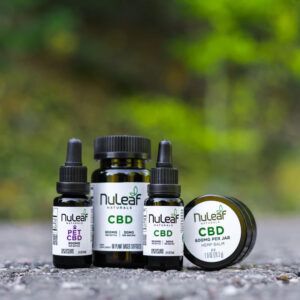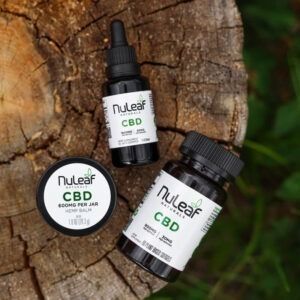What is the Best CBD Oil?
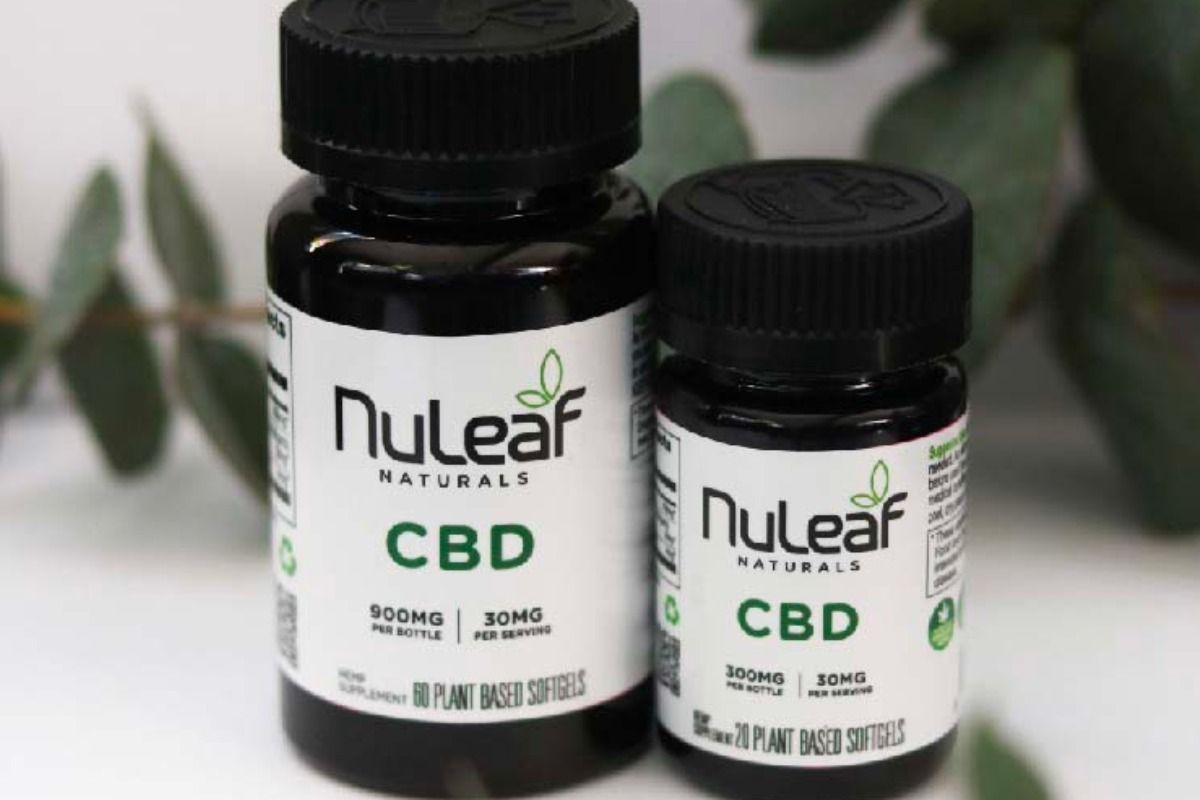
Revised August 2022
Lately, it seems that anywhere you go — grocery stores, gas stations, or even pet groomers — there’s CBD available for sale. That’s because CBD (or cannabidiol), a cannabis compound that aids in the relief of pain, inflammation, anxiety, and more, has become increasingly popular since the passage of the 2018 Farm Bill, which made industrial hemp (and its low-THC compounds) legal. But with increased popularity and demand comes increased supply and a crowded market. Now consumers are faced with a myriad of CBD oils, making it all the more difficult to determine what is the best CBD oil.
Add to this the lack of regulation with regards to the growth, manufacturing, packaging, and marketing of CBD and it’s easy to see why so many fly-by-night companies have popped up to make a quick buck on this rising wellness trend. So, how can you know if the CBD you’re buying will give you the health benefits you’ve heard so much about? How do you know what’s the best CBD oil? Here’s a quick overview of what to look for when shopping for CBD oil and how to find the best quality products.
Pros and Cons of CBD
First, let’s look at the pros and cons of CBD. This will give you a good fundamental understanding of what to consider when looking for the best CBD oil for you.
Pros of CBD
There is much we still don’t know about the health benefits of CBD, but here are a few of the benefits we have observed:
- CBD is a natural compound that rarely causes side effects.
- It has been shown to reduce anxiety, PTSD symptoms, and stress.
- CBD provides relief from chronic pain.
- It can improve sleep quality.
Cons of CBD
Here are the primary cons associated with CBD:
- Though not typical, CBD can cause side effects in some people under certain conditions, including stomach pain, diarrhea, fatigue, appetite, and weight changes
- CBD isn’t regulated by the Food and Drug Administration (FDA).
- It may interact with some medications (typically the same ones that have negative interactions with grapefruit).
- It may contain contaminants such as heavy metals and pesticides if not sourced from organic hemp plants.
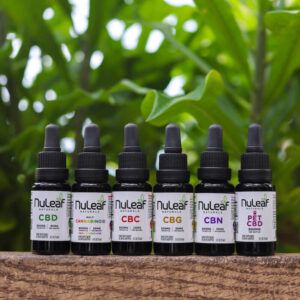 What to Look for on a CBD Label
What to Look for on a CBD Label
One of the most important things to understand when shopping for CBD oil is how to understand the label and what to look for. At the very least, the label should tell the following:
- The type of CBD extract (more on that later)
- The type of carrier oil
- The CBD content (in mg)
- The content of secondary cannabinoids (when applicable)
- The additive content (when applicable)
Now, let’s dive in to get a better understanding of what you might see on a CBD label and what it means.
Hemp vs. CBD
There’s a substantial difference between the benefits of CBD oil and hemp seed oil. CBD is extracted from the leaves, buds, flowers, and stems of the hemp plant, not from the seeds. So, while hemp seed oil functions very effectively as a carrier oil — an oil that’s mixed with CBD extract to make dosing easier — it itself doesn’t contain any CBD. So you want to ensure you’re purchasing actual CBD oil (containing a CBD extract) and not just hemp seed oil.
Isolate vs. Full Spectrum
Two of the main types of CBD extract you’ll encounter on a label are full spectrum CBD extract (CBD with other cannabinoids) and CBD isolate (just CBD). Many people consider full spectrum CBD to be superior to its isolated form because it encourages the “entourage effect,” the phenomenon of various cannabis compounds having a greater potential for physical or psychological effects when consumed together as opposed to when they’re taken on their own.
Let’s take a closer look at each of these CBD extracts:
- Full spectrum CBD oil is a CBD preparation that contains the majority of cannabis plant compounds, including some THC (0.3 percent or less). The extract is combined with a carrier oil such as MCT, coconut, avocado, olive, or hemp seed oil.
- CBD isolate is CBD that has been refined to a powder. It contains no other cannabinoids or impurities. It is pure CBD and is sometimes added to a carrier oil to make a CBD isolate oil. (Note: Because there are no other cannabis compounds present, the entourage effect won’t come into play.)
Pure vs. Potentially Contaminated
Hemp is what’s called a “bioaccumulator” — meaning it absorbs chemicals and other contaminants present in the soil at a faster rate than it expels them. That includes pesticides and heavy metals! So, when hemp is grown in unhealthy soil, or non-organically (with the use of pesticides, etc.), these contaminants accumulate within the body of the plant, and eventually end up in any CBD oil derived from that plant. These contaminants, in high enough amounts, have the potential to cause health issues for consumers.
A great way to determine whether or not a CBD oil is pure is to check the third-party lab test results. Reputable CBD companies will have these tests performed and make the results readily available (such as with a QR code on the bottle, or an easy to find link on their website like NuLeaf Naturals does). These results allow consumers to see for themselves if the product claims match what’s in the bottle. While this testing isn’t required due to the absence of FDA regulation, companies that truly offer a high-quality product will likely have it done. Avoid any that don’t.
CBD Oil and THC Content
While there are some CBD oils that contain no THC (CBD isolate, for example), many oils do contain small amounts. Most CBD oils on the market will contain no more than 0.3 percent THC (the federal limit). This is not enough to make you “high” or to cause you to fail a drug test (as long as you’re taking the recommended dosage). However, due to the poor regulations within the industry, it’s possible for some CBD oils on the market to contain more THC, which can put consumers at risk of failing a drug test and the repercussions that follow. The Certificate of Analysis (COA) should indicate how much THC is present in the product, and the third-party test results should confirm it.
Additives
CBD oil naturally has an “earthy” or “nutty” flavor, which is unappealing to some. One solution some manufacturers have come up with is to add flavorings to their CBD oil. While this can help make it more palatable, it can also decrease the potency, and subsequently the efficacy, of the CBD oil — not to mention the shelf life.
Potency
The strength — or potency — of the CBD oil is definitely an important thing to consider. Potency is measured in milligrams per 1 milliliter. For example, a 5 ml bottle of CBD oil has 300 mg CBD in it. As 300 ÷ 5 = 60, that CBD oil has a strength of 60mg/ml. Here’s a quick overview of different potencies and what they mean:
- Low strength: 5 mg/ml of CBD or less
- Medium strength: 15–30 mg/ml
- High strength: 30–60 mg/ml
- Ultra high strength/concentrate: 60 mg/ml or more
Extraction Methods
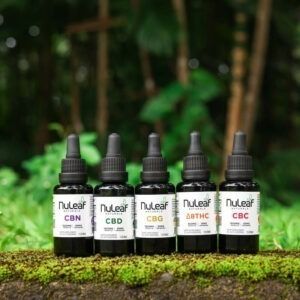 There are many ways to extract CBD from hemp, and some are definitely better than others.
There are many ways to extract CBD from hemp, and some are definitely better than others.
One of the least expensive methods involves using ethanol to strip the plant matter from the CBD. Once enough CBD has been collected, it is heated (carefully), causing evaporation of the alcohol and leaving the CBD behind.
Another method (and the preferred one) is CO2 extraction. This option doesn’t require heat (which can degrade the oils) and creates a superior product by preserving more of the natural terpenes, oils, and other parts of the hemp plant that contribute to its beneficial effects. The result of CO2 extraction is a more pure and potent CBD oil. This method is more expensive for manufacturers and the resulting CBD oils can be more expensive, but it’s worth it for the increased potency. Plus, it’s a more sustainable, earth-friendly production method.
Certifications
In the absence of FDA regulation, seek out CBD oil companies with the following third-party certifications:
-
- cGMP Certification: The FDA’s main regulatory standard, the Current Good Manufacturing Practices (cGMPs), ensures that a product is both safe and effective. This certification means that manufacturers have proper quality management and procedures in place throughout their facilities and can detect, investigate, and prevent errors and deviations.
- Detox Project: The Detox Project gives their stamp of approval to products that meet strict quality standards and are free of glyphosate, the most widely used herbicide in the world.
- ISO Certification: The International Organization for Standardization (ISO) is an independent, non-governmental organization that develops standards to ensure consistency, safety, and sound business practices.
- Certified B Corporation: B Lab, in their mission to transform the economy by balancing “profit with purpose,” creates standards, policies, tools, and programs that for-profit companies must meet across five categories: accountability, transparency, performance, availability, and cost.
Recap
- It’s important to know what to look for and how to identify high-quality CBD products.
- Make sure you’re getting CBD oil and not just hemp seed oil.
- To experience the full benefits CBD has to offer, choose full spectrum CBD oil over CBD isolate oil.
- Opt for a CBD oil that has undergone CO2 extraction rather than other extraction methods.
- Review third-party test results and COA’s to confirm cannabinoid content and potency, the absence of contaminants, and label accuracy.
CBD Oil FAQs
Q: What strength CBD oil is best for me?
A: The right CBD potency or strength for you really depends on what you’re trying to achieve with your CBD regimen. NuLeaf Naturals suggests a starting dose of 30 mg (10 drops) per day, taken sublingually, and split between 2 doses. If you don’t experience your desired results at that dose, slowly increase your daily dose as necessary.
Q: What form of CBD is most effective?
A: Vaping or smoking CBD provides the highest level of bioavailability (how much of a substance is able to enter circulation and reach the target site), however, these methods come with their own downsides. The next most effective form of CBD is CBD oil taken sublingually.
Q: Can I use CBD daily?
A: Yes, in fact it’s recommended. While effects can be felt within 20 minutes of taking CBD oil, it can be subtle. The long-term benefits may take several weeks to notice. Give it time and remember that the benefits can be cumulative.
Q: What are the side effects of CBD?
A: Though CBD can be tolerated in relatively high doses, it can still have negative side effects, including diarrhea, vomiting, and drowsiness. If you’re on any medications, it’s a good idea to speak with your doctor before starting a CBD regimen.
What Company Sells the Purest CBD Oil?
There is a plethora of CBD oils available on the market, but just because a CBD oil is for sale, doesn’t mean it’s any good. Currently, the FDA doesn’t make any guarantees about the safety, efficacy, or quality of over-the-counter CBD supplements. So, it’s up to the consumer to choose wisely.
A leader in the manufacturing and distribution of pure, organic CBD oil, NuLeaf Naturals offers quality and experience you can trust.
- We guarantee you’ll never find fillers or preservatives in any of our CBD oils.
- All of our plants are grown under strict supervision in the US, leaving little time between harvest and extraction.
- To avoid the use of harsh solvents or heat, NuLeaf Naturals uses a special CO2 extraction method — cleanly drawing out the oils through the introduction of carbon dioxide. This process ensures the final product is the cleanest full spectrum CBD oil possible.
- Our facilities are cGMP- and ISO-certified and we’re also B Corporation certified.
- To ensure consistency and high quality for each bottle, NuLeaf Naturals’ CBD oils are subject to third-party laboratory analysis and reporting. This ensures our full spectrum oil contains a high profile of CBD, with no detected heavy metals or contaminant counts.
Shop now and get the most out of your CBD regimen with our pure and effective full-spectrum supplements.
Do you have questions about our products, or are you not sure which one is right for you?
Our Expert Team is here to help via phone, email, or online chat:
Telephone: +1 (720) 372-4842
Email: [email protected]
Online chat: nuleafnaturals.com
Don’t hesitate to get in touch with us between 9am and 5pm MT, Monday – Friday.
